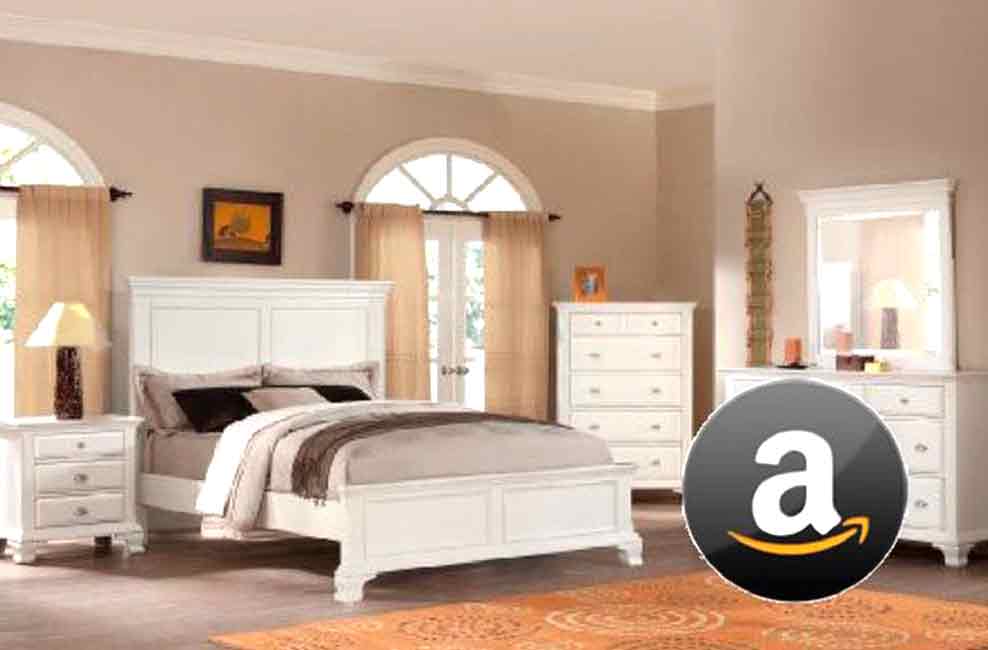Amazon.com is making a major push into furniture and appliances, including building at least four massive warehouses that specialise in handling bulky items, according to a report in the Wall Street Journal who spoke with people familiar with the online company’s plans.
With that move, Amazon is taking on two companies that currently dominate online furniture sales — Pottery Barn owner Williams-Sonoma and homewares e-tailer Wayfair. Furniture is one of the fastest-growing segments of online retail in the US, growing 18% in 2015, second only to groceries, based on data from financial services company Barclays.
About 15% of the USD70 billion (AUD95 billion) US furniture market has moved online, researcher IBISWorld says.
But even the biggest players in online furniture are struggling to get the market right. Unlike established categories such as books and music or even apparel, retailers are still working out basic concepts like how much variety to offer on their sites and the most efficient ways to deliver couches and tables to customers’ homes.
While Amazon has been selling furniture for years, it has lately decided to tackle the sector more forcefully. Veenu Taneja, furniture general manager at Amazon, told the Wall Street Journal: “Furniture is one of the fastest-growing retail categories here at Amazon.”
He said the company is expanding its selection of products, with offerings including Ashley Furniture sofas and Jonathan Adler home decor, and is adding custom-furniture design services. Amazon is also speeding up delivery to one or two days in some US cities.
The online retailer already has an about 17% market share in the broader home-furnishings category, according to Morgan Stanley, and it is continuing to gain. The segment includes smaller items such as cookware and towels.
While Amazon has disrupted industries from publishing to fashion with free and fast shipping and app-based one-click buying, furniture can be a tough sector to crack. One reason is that it costs a company more to deliver a couch and other big items because they take up more space, meaning a driver makes fewer deliveries on his or her daily route. Some furniture customers also want “white glove” services, extras like bringing the piece into the home, setting it up and removing trash.
Shoppers are still generally willing to pay for furniture delivery, but some retailers and logistics companies say they are facing growing pressure to ship online orders faster.
Wayfair offers free shipping on orders over USD49, but delivery times can range from one or two days to just over two weeks. Pottery Barn in the US charges on a sliding scale based on price, with delivery costs running above USD100 for more expensive items.
Furniture sold and shipped directly by Amazon is free for Prime members and on orders over USD25, while items sold by third-party sellers may cost extra.
To guarantee two-day shipping to 99% of consumers, a retailer or logistics company would need up to a dozen large warehouses spread around the US, plus around 110 smaller facilities to stage deliveries to customers’ homes, said Troy Cooper, chief operating officer at XPO Logistics, which manages distribution centres and fulfils online orders for large retailers like Ikea.
By comparison, a retailer can deliver furniture within a week to most customers simply by planting a large distribution centre on each coast, similar to how they would manage inventory for brick-and-mortar stores, Cooper said.
Amazon is expected to rely on XPO and other third-party logistics providers to manage distribution centres and handle delivery of furniture and appliances for the near future, even as it brings more of its logistics in-house in other parts of its business, according to people familiar with the company’s plans.
Increasing sales may be helping reduce the cost burden for online furniture retailing. Costs go up for transportation companies as deliveries get more spread out and infrequent.
“Just in the last year, furniture has taken off,” said Richard Phillips Jr, chief executive at Pilot Freight Services, a Pennsylvania-based trucking company that makes larger e-commerce deliveries. The company’s No 1 business-to-consumer shipment has shifted from TVs to furniture.
Pilot is one of many logistics companies building nationwide networks to handle bulky items as retailers look for cheaper ways to ship furniture and appliances ordered online. XPO made 12 million home deliveries last year, up from 9 million in 2015.
These companies are filling in part a void left by United Parcel Service and FedEx, whose executives have complained about bulky items taking up space in distribution centres designed to process millions of small packages at lightning speed.
From Wall Street Journal/The Australian

